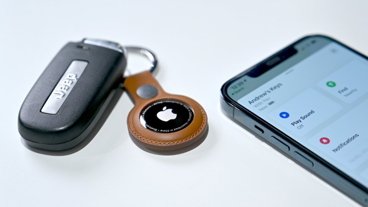Verizon to kill unlimited data plans in transition to 4G LTE
At the 40th Annual J.P. Morgan Technology, Media and Telecom conference Shammo said that current unlimited users, whose data plans were grandfathered in when Verizon made the switch to tiered plans in July 2011, would lose the all-you-can-eat option if and when they move to 4G, reports Fierce Wireless.
Verizon is leveraging its speedier 4G LTE network to attract customers away from their $30 per month unlimited plans to new data-sharing tiers which are scheduled for a mid-summer rollout.
"A lot of our 3G base is on unlimited," Shammo said. "When they migrate off 3G they will have to go to data share. That is beneficial to us."
In their quest to garner the highest possible revenue per user, carriers have quickly moved away from the unlimited data plan, which was first introduced as an enticement to enter the then-nascent smartphone market. With the rise of data-hungry handsets like the iPhone, wireless companies found that a capped and tiered pricing model was the most lucrative solution.
Currently, unlimited customers pay $30 per month on Verizon's network, identical to the price paid by grandfathered users on other networks like AT&T.
Unlike Verizon, AT&T extended its legacy plan to 4G LTE customers, but at the same time instituted speed throttling for users who pass a "threshold" of 3GB and 5 GB each month for 3G and 4G users, respectively. Earlier in May, AT&T Chief Executive Randall Stephenson said that he wishes his company never offered unlimited data.
Verizon CFO Fran Shammo.
Verizon's upcoming data share plans are meant to streamline the management and offer an attractive price structure to contract owners who own multiple smartphones, such as small businesses or families. Shammo noted that the industry has crippled the smartphone market by restricting data usage to individual devices.
"If I can add as many devices as I want, that is more efficient from a family perspective and a small business perspective," Shammo said.
Carriers have promised shared data plans for nearly a year, though the nation's top providers only recently firmed up strategies and possible launch windows.
Shammo noted that as carriers implement shared plans, they will have to move from studying average revenue per user metrics to average revenue per account.
Pricing for Verizon's data share plans have yet to be announced, but Shammo made it clear that the company is pushing hard for the new model.
"Everyone will be on data share," Shammo said.
 Mikey Campbell
Mikey Campbell











 Andrew Orr
Andrew Orr
 Malcolm Owen
Malcolm Owen

 William Gallagher
William Gallagher

 Mike Wuerthele
Mike Wuerthele
 Christine McKee
Christine McKee








